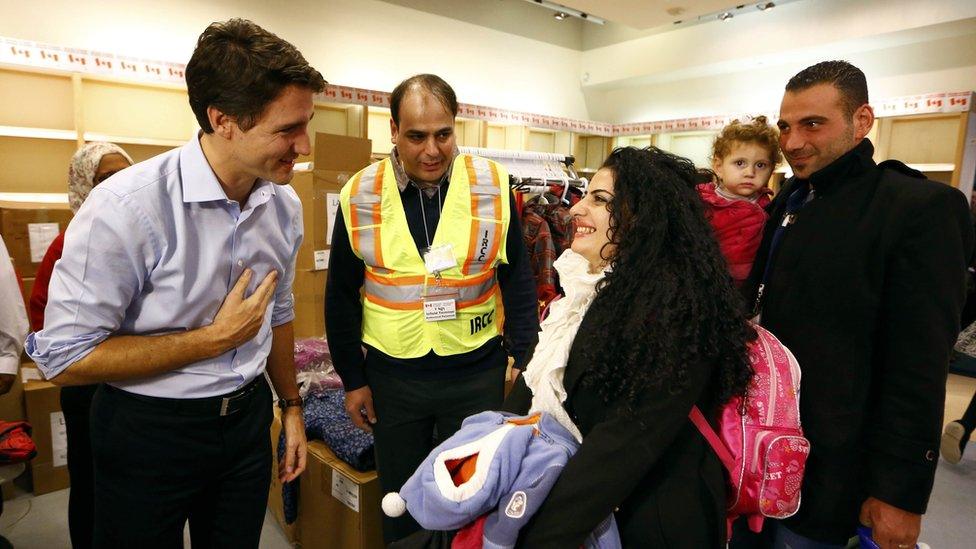Canada not immune to right-wing extremism
- Published
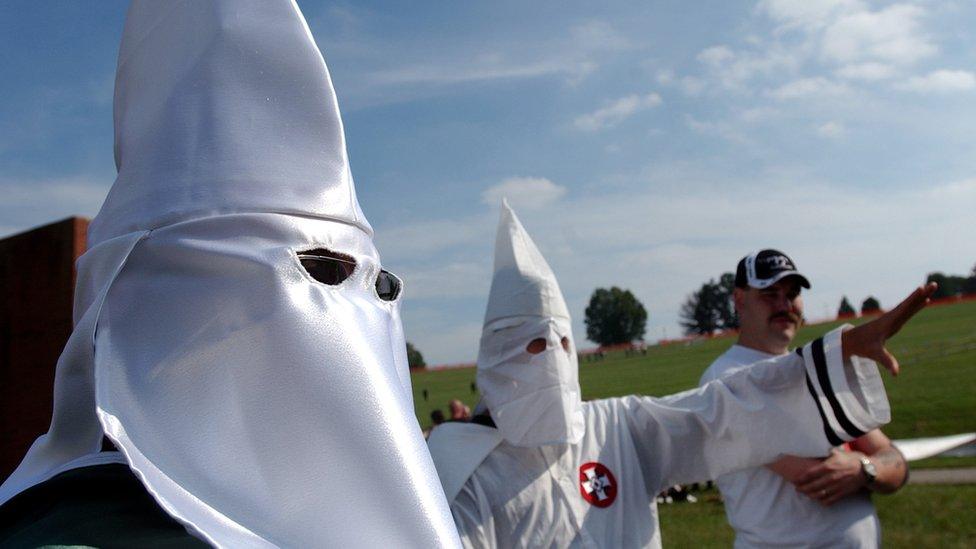
In the middle of the night in early October, Ku Klux Klan flyers stuffed into Ziploc bags landed on the doorsteps of a few dozen homes in two British Columbia towns.
Similar flyers were dropped in a neighbouring community over the summer.
In recent weeks, anti-Muslim and anti-Sikh posters also cropped up on two university campuses in Alberta. It is unclear who was behind the incidents. Police are investigating.
These events contrast with Canada's image as an open, multicultural society, and one that recently opened its doors to more than 30,000 Syrian refugees.
But for researchers like James Ellis, who is affiliated with the Canadian Network for Research on Terrorism, Security and Society (TSAS), external, they come as no surprise.
"At the national level, there seems to be less of a concern about right-wing extremism (than other forms)," he said.
"That's probably a luxury that Canada can't really afford. Every indication is there seems to be a resurgence of right-wing extremism and terrorism throughout the western world and there's no special reason why Canada won't see some of the same effects."
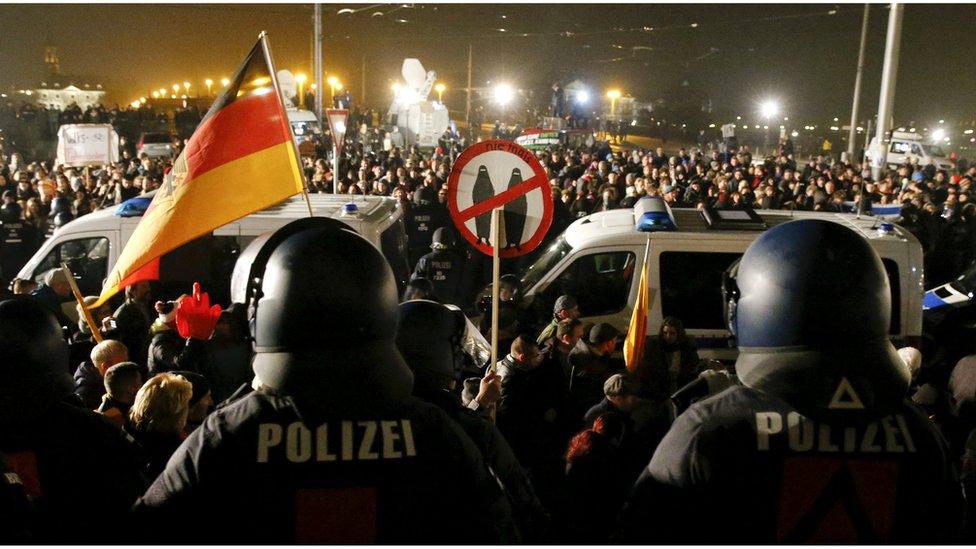
Pegida has established a presence in Canada
Canadian right-wing extremists - loosely defined as people who exhibit a strong bent towards inequality especially along racial or ethnic lines, a belief in ethnic nationalism, and a radical means to achieve these political ends - have been emboldened by the anti-immigrant rhetoric coming from the US and Europe in recent months, Mr Ellis said.
Like elsewhere, it is a sentiment also fuelled by concerns over economic and social instability.
In Canada, there are at least 100 right-wing extremist groups estimated to have been active in recent years, ranging from small cells to larger, more organised groups, though they tend to be less violent than those in the US and Europe.
Even so, Mr Ellis said there's long been a "cross-pollination" of ideas within these groups - and Canada is providing plenty of ideological fodder.
"There are lots of situations where hate speech and hate music originated here and influenced people elsewhere," he said.
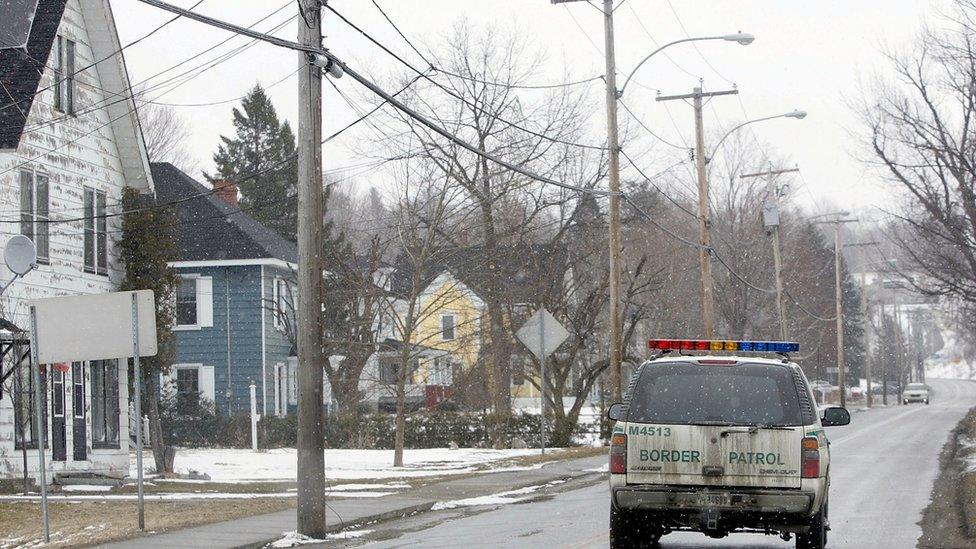
Political ideology and rhetoric do not respect national borders.
Similar pro-KKK flyers to those dropped in BC have also been found across the US, from North Carolina to California and Pennsylvania.
American radical right groups are on the rise, according to the Alabama-based Southern Poverty Law Center, external, which tracks extremist organisations.
Between 2014 and 2015, their number increased 14%, and KKK chapters grew from 72 in 2014 to 190 last year. The centre did note a decline in the "hardest core sectors" of the white supremacist movement.
Ryan Scrivens, a researcher at BC's Simon Fraser University who studies Canada's right-wing extremists, said US and European authorities have been better at tracking these movements than their Canadian equivalents.
"Over there they own it, we don't. We think we're this perfect multicultural country but we aren't," he said. "We don't see the same flare-ups because we don't have the population sizes, but it's still there."
Mr Scrivens and his colleagues have found targeted extremist violence, external to be widespread across the country and have found hundreds of incidents between 1980 and 2015, documenting verbal and physical assaults and vandalism linked to these groups.
Activity is clustered around Quebec, Western Ontario, Alberta and BC's lower mainland.
Tracking of Canadian hate crimes suggest Muslims, Jews, visible minorities and Aboriginal people are the most common targets.
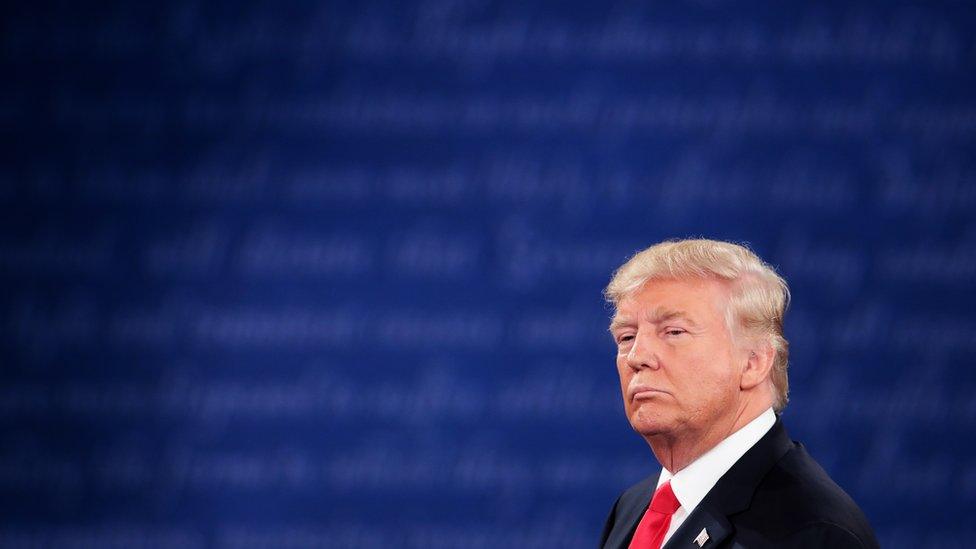
Republican presidential candidate Donald Trump has made anti-immigrant politics a key part of his campaign
One reformed violent extremist, however, said he is more concerned about where the majority of the country is heading than people on the extremist fringes.
Anthony McAleer is a former Canadian organiser and recruiter for the White Aryan Resistance. He now works with Life After Hate, a US non-profit founded by ex-members of the American violent far-right extremist movement. Life After Hate is dedicated to countering far-right ideology.
Mr McAleer points south to the rhetoric coming from Donald Trump, who has called for a ban on Muslim immigration to the US as well as "extreme vetting" for immigrants. He is worried that - whether the Republican US presidential candidate knows it or not - "he's moving the middle of the country. And when he pushes that middle out he can't help but push out the extreme (fringes)".
While Canada's economy is not as affected by inequality as other nations and has been broadly able to integrate its immigrants and refugees, Mr McAleer warned that pressures exist that can change a country's culture.
Those pressures range from rhetoric from other regions and chatter on cable news to anti-Islam groups like Pegida - an acronym for Patriotic Europeans Against the Islamisation of the West - that have established a presence in Canada.
Kellie Leitch, a federal politician running for Conservative party leadership, has also been criticised for proposing to screen immigrants based on vaguely defined "Canadian values".
While other leadership contenders have condemned her proposal as "fear mongering", external, Ms Leitch has denied she is targeting any specific groups with the values test.
Polls suggest her proposal, external has broad support among the Canadian public.
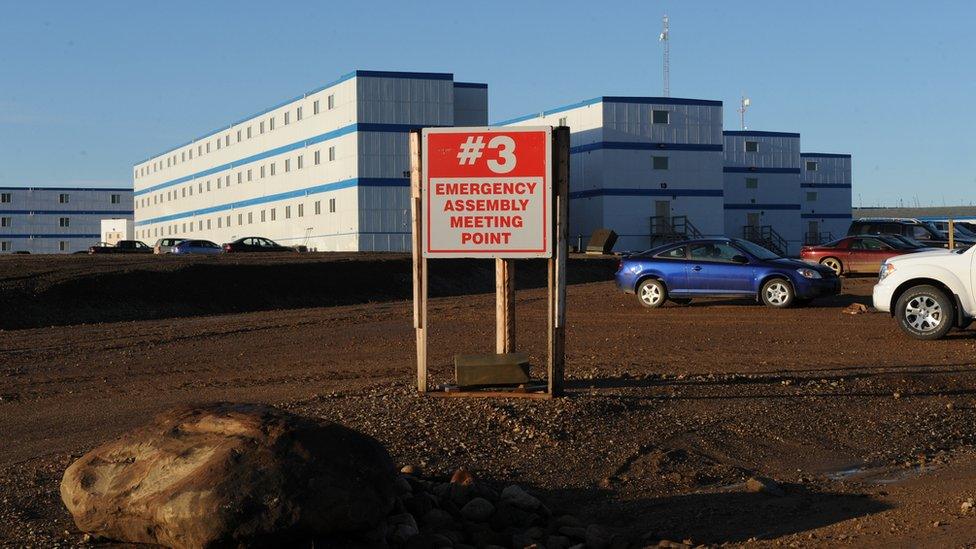
Canada's oil sector is struggling amid a global weak oil prices
And there are pockets of economic stagnation in oil-producing regions deeply affected by the oil rout.
These "bellwethers" are what Mr McAleer says he worries about more than far right extremists operating in the country.
''You have to look at both,'' he said. "One is clearly more a law enforcement threat. One is a social fabric threat.''
- Published26 August 2016
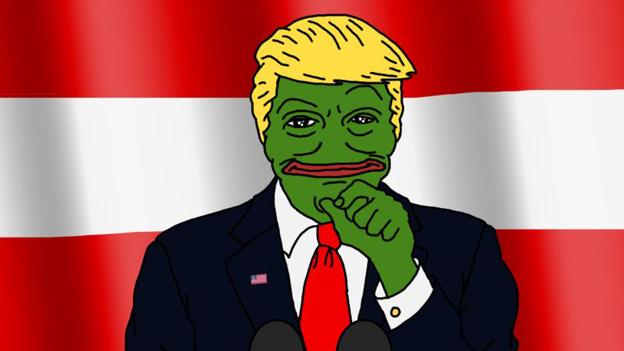
- Published11 December 2015
